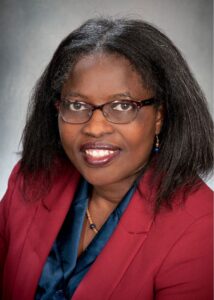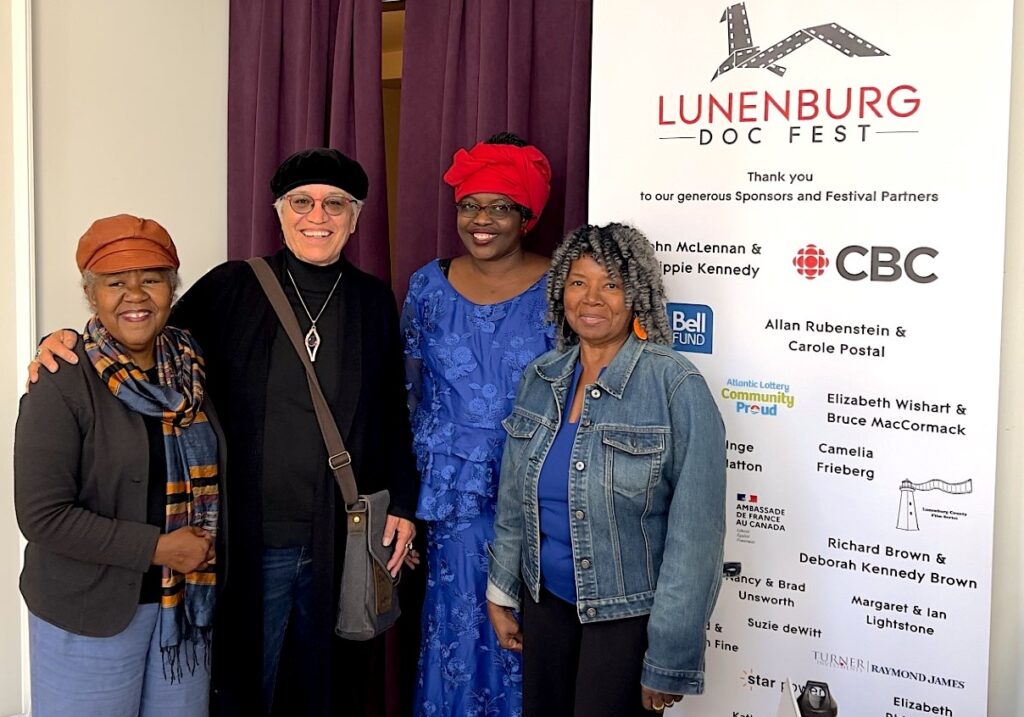 Bachelor of Journalism (BJ) student Eunice Abaga is not one to do anything halfway, committing herself fully to everything she does.
Bachelor of Journalism (BJ) student Eunice Abaga is not one to do anything halfway, committing herself fully to everything she does.
An example of this? Abaga has not one university degree, but four. She currently volunteers with three organizations. If her impressive resumé isn’t evidence enough, Abaga is also the winner of three other awards in addition to the Sylvia D. Hamilton Award.
The Sylvia D. Hamilton Award is a major entrance award valued at $2,020 annually, reflecting the year that Inglis Professor Hamilton retired from King’s. It’s open to African Canadian students, with a preference given to those entering the journalism program, like Abaga.
For Abaga, pursuing journalism is the culmination of a lifelong dream. “I was fifteen when I first wanted to do journalism. If someone asked me today, why I am doing this? I would say I’m living my dream.”
If someone asked me today, why I am doing this? I would say I’m living my dream.
Abaga was born and raised in Kenya, she received her first degree there—a bachelor of education—before moving to Nova Scotia in 2000. Over the 24 years she’s lived here, she’s attained graduate degrees in Adult Education from Mount Saint Vincent University and Public Administration from Dalhousie University. Alongside this, she’s pursued a career as a Policy Analyst with the Nova Scotia Department of Health and Wellness. In the midst of this busy schedule, Abaga has also found time to give to others.
“I’m very involved in the community,” she explains. “It’s the way I manage my social life, and I think like many people, contributing to the community brings me some kind of fulfillment. So I volunteer a lot.”
She currently serves on the board of the Health Association of African Canadians, and is a patient researcher for Upstream Labs, an Ontario-based non-profit that researches social determinants of health. In the past, she has volunteered with New Start Counselling, the Immigrant Services Association of Nova Scotia (ISANS) and Passages Canada, a program centred around documenting the experiences of newcomers in Canada.
“That was the first time I got interested in digital storytelling,” she says of her experience with Passages. “They taught us about digital storytelling, and published a video on my story. That story used to be shared in classrooms. If you go on their website, you can still find it there.”
What you wouldn’t know from scanning her impressive resumé is that alongside all of this, Abaga has navigated exceptional challenges. Since 2019, she has been grappling with health issues and chronic pain that have reshaped her life and outlook.
“… I hope I can survive longer… I look forward to each and every day—every day is Christmas for me. I celebrate each and every day.”
A year ago, she was thinking about what she wanted to do next. Her therapist had recommended keeping busy and getting involved with things as a way to manage her health issues—though, getting involved has never been an issue for Abaga. She began looking into journalism and filmmaking opportunities, and volunteered to help with a documentary called What (a) Wonderful World? A Deep-Dive into Systemic Racism. The experience focused on teaching participants how to use their mobile devices to create documentaries and other forms of visual storytelling.
Then, she received a call that changed her life forever. Her sister, a healthcare worker living in the U.S., had been stabbed to death by a patient.
“She was my everything,” Abaga says softly. “She was my everything.”
It was during this exceptionally dark time—a time anyone would struggle to come back from—that she leaned into the healing nature of storytelling.
As part of her involvement with What (a) Wonderful World?, she was tasked with finding and interviewing twelve different people. She says the interviews helped her through the grieving process.
“When I used to get out to go and interview people, it was very therapeutic for me. Because I wouldn’t be sitting at home and crying, ‘Why did my sister die? Why did [these things happen?]’ [It was] that aspect of human interaction and doing something for a reason. It’s as they say journalistically, find someone who is doing something for a reason. So, when I used to go out and do the interviews, it was very therapeutic.”
This, combined with her volunteer work for Upstream Labs, made her feel like she had a purpose. It helped her pull through.

Photo by: Gwendolyn Geddes
L to R: Dr. Sylvia D. Hamilton, Michelle Sylliboy, Eunice Abaga, Dolly Williams
Not many scholarship recipients can say they’ve sat down and had tea with the namesake of their scholarship. Eunice Abaga can. She was at the Lunenberg Doc Fest, attending the premiere of What (a) Wonderful World? when she met the Nova Scotian filmmaker, poet and journalist in person, having learned she won the award only shortly before.
Abaga came to King’s navigating a new, difficult world of grief and health issues, but she is excelling in these new circumstances all the same. She’s already thinking about degree number six, perhaps a Master of Journalism. As for a beat, she’s interested in telling stories from a healthcare perspective, drawing from her professional expertise, her volunteer work and her personal experiences.
“I have a particular interest in social determinants of health.”
Whatever the future holds for Eunice Abaga, there is no doubt she will give it one hundred and ten per cent.

